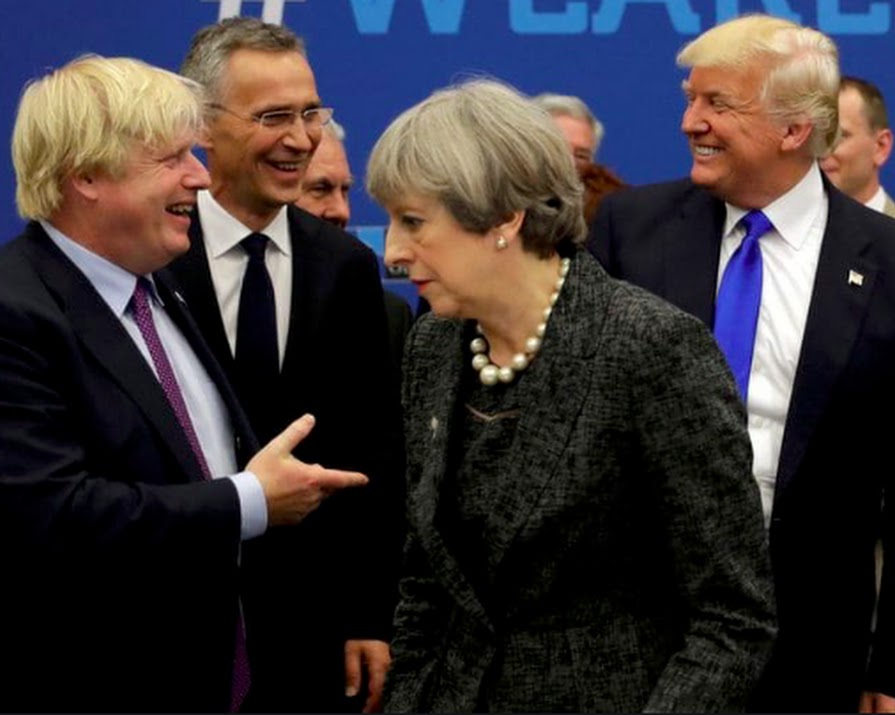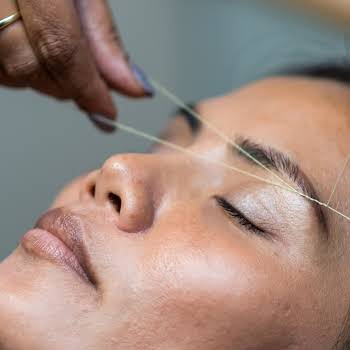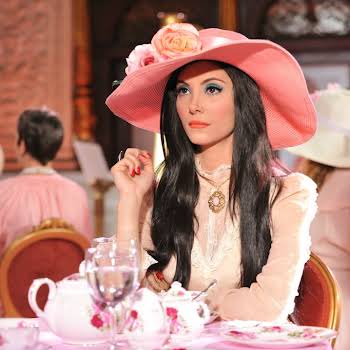
By Amanda Cassidy
18th Oct 2019
18th Oct 2019
‘Playing the sexism-card’ is dismissive put-down for those who pointed out that Boris Johnston’s Brexit deal wasn’t too dissimilar to Teresa May’s withdrawal agreement a few months ago. But did the bluster of Boris trump May’s quiet diplomacy? And is aggression in politics an essential quality?
Amber Rudd quit Boris Johnson’s Cabinet and the Conservative Party over his approach to Brexit. This week, after being privy to details of the so-called new Brexit deal, she spoke out about her opinion on why the same people who hated Mrs May’s deal now support Mr Johnston’s even though ti will not be much different.
“I think there absolutely is a whiff of sexism,” she said. “It is difficult to fillet out… how much is about a more trusting relationship that they clearly have with Boris Johnson, because he himself was very much part of that ERG group in terms of wanting a harder Brexit than the former Prime Minister wanted, but I do feel as a woman who’s active in politics myself, that there is a whiff of sexism.”
Political reality?
But House of Common’s leader, Jacob Rees-Mogg immediately dismissed the idea. “I think – what was it Dr Johnson said about patriotism being the last refuge of the scoundrel – that just because you disagree with someone who happens to be a woman, doesn’t make you sexist.
He continued; “Most of the members of the ERG, and some of them served her, thought that Margaret Thatcher was the greatest leader this country has had post-war and would have backed her to the hilt because they trusted her and thought she had the country’s interests at heart.
“Theresa May did not inspire that kind of confidence. That’s not sexist, that’s just a political reality. She came up with a deal that was hopeless.”
Power
But, laying gender aside, isn’t it more about aggression in politics that is key here, that ‘kill or be killed’ mentality that Thatcher may have had? Is being bullish essential to politics – a trait mostly associated with the men in our global political landscape?
“It’s aggressive. It’s very off-putting… women are able to do business in a quiet way. That’s their modus operandi”.
Here in Ireland, long-time politician Joan Burton was quoted as saying that women have to be “quite resilient and pushy enough” to show that they are not “some kind of add-on or decoration”.
Similarly, Mary Mitchell O’Connor pointed out that political life is traditionally “laddy”. “The behaviour is macho, she explained. ” It’s aggressive. It’s very off-putting… women are able to do business in a quiet way. That’s their modus operandi”.
But in a world where we have larger-than-life characters like Trump and Johnston vying for headlines, how does that quietly confident MO play out for women in politics?
Progressive?
But some believe that there is an equally quiet shift in the landscape.
Previously boorish politics might have garnered attention in a more apathetical voter, but better informed public, more woke individuals are lauding the less brash approach some female politicians bring to the political table. Put simply, we are becoming more progressive.
Being slapped down for comments on female representative’s hair (like AOC recently) or how they dress is more commonplace.
In Italy, for example, a country who have had 58 prime ministers – every one a man, saw seven women being appointed ministers. Agriculture Minister, Teresa Bellanova, who had been a farm worker and trade unionist wore an eye-catching blue dress at the new cabinet inauguration.
A male journalist mocked her on social media, tweeting a photo of her with the caption; “Carnival? Halloween?” he was slapped down by many Italians, indignant at what they saw as sexism and snobbery.
Macho
What a superficial analysis against a future leader.
But a new breed of quiet leaders are beginning to shine. Could macho politics be waning? Does shouting the loudest serve a country’s people best anymore?
Our own Taoiseach is unlikely to be described as macho in the colloquial sense. A bookish character, Leo Varadkar didn’t seem to rely on aggression to stand firm over the government’s wishes on Brexit. Addressing the Dail, earlier in his career, he pointed out that Leinster House was a safe place.
“Do women in power feel they have to emulate more dominant male-traits in order to be heard?”
“That is not to say there isn’t macho behaviour on occasion, in the Oireachtas, there certainly is, but I have spoken myself in the past about how very often when you’re trying to conduct normal business in the Dáil you’re interrupted and shouted down constantly. All forms of inappropriate behaviour, boorish behaviour or obnoxious behaviour, don’t necessarily constitute systemic bullying or sexual assault so I think we have to bear them in mind”.
Double standard
But does a double standard still remain that often seems to reward men for the same qualities that are penalised in women? In other words, do women in power feel they have to emulate more dominant male-traits in order to be heard?
Or are women with more flamboyant personalities more likely to encounter greater difficulty when it comes to ego?
We are still in the era of male-dominated politics. Thankfully, change is creeping in, and more voices (of all volumes and frequencies) are available to us.
Unfortunately, we still seem to be stuck in a place where the empty can often rattles the loudest.
Image via Washington Post
Read more: Brexit explainer: What’s the deal and what happens now?
Read more: Can we stop talking about male-toxicity?
Read more: Meet the women who want to change Irish politics























